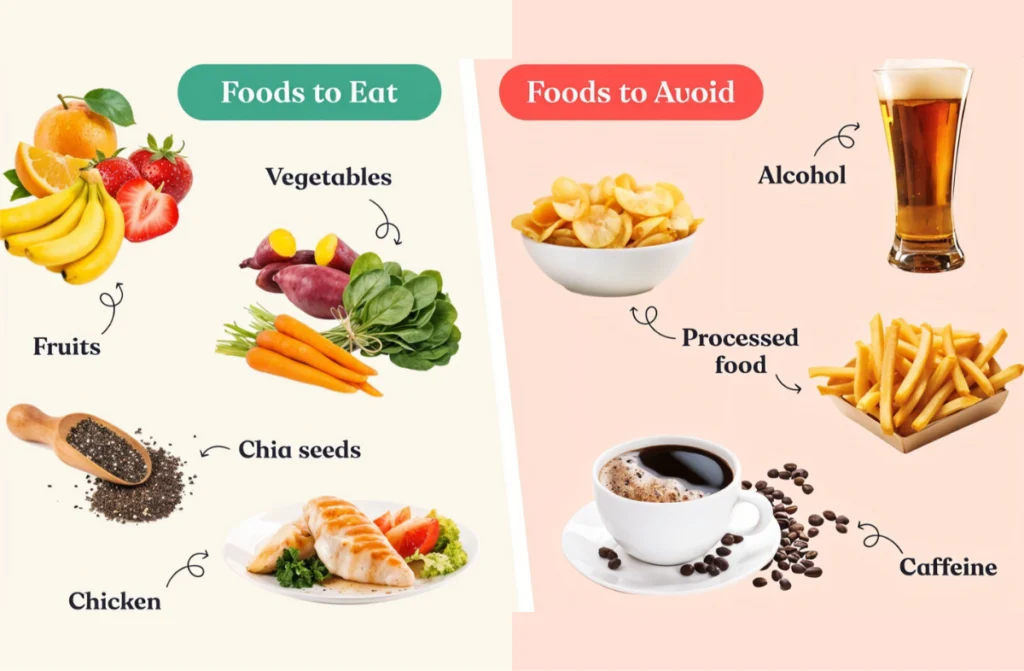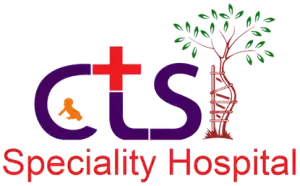Recovering from heart bypass surgery requires more than just rest and medication. A well-planned diet is essential for healing and maintaining long-term heart health. At CTS Specialty Hospital, we’re committed to guiding our patients through every step of their recovery journey. One of the most crucial aspects of this journey is understanding the right diet after heart bypass and how it impacts your overall health.

What is Heart Bypass Surgery?
Heart bypass surgery, also called coronary artery bypass grafting (CABG), is a procedure to restore blood flow to the heart by bypassing blocked arteries. It’s often recommended for individuals with severe coronary artery disease. After surgery, adopting a heart-healthy lifestyle, especially focusing on a proper diet after heart bypass, becomes essential to prevent complications and promote recovery.
Best Diet Plan After Heart Bypass Surgery
Creating a balanced diet after heart bypass involves incorporating foods that support heart health while avoiding those that can strain your recovery. A good diet includes:
- Plenty of fruits and vegetables: These provide vitamins, minerals, and antioxidants that promote healing and heart health.
- Whole grains: Choose brown rice, quinoa, or whole-wheat bread for fiber and sustained energy.
- Lean proteins: Opt for fish, skinless poultry, and plant-based proteins like beans or lentils.
- Healthy fats: Incorporate sources of unsaturated fats like avocados, olive oil, and nuts in moderation.
- Low-sodium options: Reducing salt helps control blood pressure and reduces strain on your heart.
Consistency is key to a successful diet after heart bypass, as it helps your body heal faster and reduces the risk of future complications.
Foods to Eat After Heart Bypass Surgery
To make your diet after heart bypass effective, focus on foods that are nourishing and easy to digest:
- Oats and whole grains: High in fiber, they help lower cholesterol levels.
- Leafy greens: Spinach, kale, and other greens are rich in nitrates that improve blood flow.
- Berries: Blueberries and strawberries are antioxidant-rich and support cardiovascular health.
- Fish high in omega-3 fatty acids: Salmon, mackerel, and sardines reduce inflammation and improve heart function.
- Low-fat dairy: Yogurt and skim milk provide calcium without adding saturated fats.
By including these options in your diet after heart bypass, you can support your heart health while ensuring optimal recovery.
Foods to Avoid After Heart Bypass Surgery
Certain foods can hinder your recovery or lead to further complications. Avoid:
- Fried and fatty foods: These increase cholesterol levels and can clog arteries.
- Processed meats: Sausages and salami are high in saturated fats and sodium.
- Sugary snacks: Excess sugar increases weight and puts extra strain on your heart.
- High-sodium foods: Packaged soups, chips, and canned goods contribute to high blood pressure.
- Alcohol: It interferes with medications and can raise blood pressure.
Eliminating these items from your diet after heart bypass helps maintain better overall health and reduces risks.
Medications After Heart Bypass Surgery
Patients are often prescribed medications like blood thinners, beta-blockers, and cholesterol-lowering drugs. Following the prescribed diet ensures these medications work effectively, as certain foods can interfere with their function. A proper diet after heart bypass supports the body in metabolizing these medications safely and effectively.
Resuming Activities After Heart Bypass Surgery
Physical activity is crucial for recovery but should be resumed gradually. A proper diet after heart bypass fuels your body for activities like walking, light stretches, and eventually more intensive exercise under medical guidance. Nutrient-rich meals provide the energy and strength required for a steady return to normal activities.
Side Effects After Heart Bypass Surgery
Common side effects include fatigue, swelling, and changes in appetite. A healthy diet rich in nutrients can mitigate these side effects and accelerate healing. Consistency is key; sticking to your diet after heart bypass helps your body adapt better, minimizes discomfort, and enhances your quality of life.
Diet Chart for Heart Patients After Angioplasty
The diet chart for heart patients after angioplasty overlaps significantly with post-bypass diets but requires specific attention:
- Morning: Start with oats, a handful of nuts, and green tea. These provide slow-releasing energy and essential nutrients.
- Mid-Morning: Snack on fruits like apples or oranges for a natural sugar boost.
- Lunch: Include a small portion of brown rice, steamed vegetables, and grilled fish to ensure a balance of protein and fiber.
- Evening: Opt for a light snack like whole-grain crackers or yogurt to maintain energy levels.
- Dinner: Focus on a bowl of soup, whole-grain bread, and a side of salad for a light but fulfilling meal.
- Before Bed: Drink warm milk with a pinch of turmeric to aid in digestion and provide anti-inflammatory benefits.
Following a structured diet chart for heart patients after angioplasty ensures stable energy levels and optimal recovery.
What is Angioplasty?
Angioplasty is a minimally invasive procedure to open blocked arteries using a small balloon. It’s often combined with stent placement to keep arteries open. Like bypass surgery, it necessitates dietary changes for optimal recovery. A structured diet chart for heart patients after angioplasty is crucial to avoid complications and support long-term heart health.
How Diet and Heart Health Are Related
The link between diet and heart health is undeniable. A diet high in unhealthy fats, sugar, and sodium can damage arteries and lead to conditions requiring surgery. Conversely, a diet rich in nutrients can prevent further complications and improve overall heart function. A thoughtful diet for heart patients after angioplasty helps protect your cardiovascular health and enhances your quality of life.
Diet for Angioplasty Patients
Creating an effective diet for heart patients after angioplasty involves:
- Incorporating healthy fats: Olive oil, nuts, and seeds support heart health by providing unsaturated fats.
- Adding whole foods: Brown rice, quinoa, and legumes provide essential nutrients and sustained energy.
- Eating frequent, small meals: This approach helps maintain stable blood sugar levels and reduces strain on the digestive system.
Making these choices ensures your diet for heart patients after angioplasty supports recovery and improves heart health.
Foods to Avoid After Angioplasty
To make a diet for heart patients after angioplasty successful, avoid:
- Red meats: These are high in saturated fats and can contribute to artery blockages.
- High-fat dairy products: Replace cream and butter with low-fat alternatives.
- Caffeinated beverages: Too much caffeine can strain your heart and affect recovery.
What Is the Right Diet for Heart Attack and Stents?
After a heart attack or stent placement, adopting the right diet is crucial to prevent recurrence. A diet for heart patients after stent should prioritize:
- High-fiber foods: Beans, lentils, and whole grains improve cholesterol levels and aid digestion.
- Potassium-rich foods: Bananas and sweet potatoes help regulate blood pressure naturally.
- Low-fat protein sources: Include tofu, fish, and chicken without skin for a healthy protein intake.
By following a structured diet for heart patients after stent, you can significantly lower the risk of further heart complications.
Diet After Heart Attacks and Stents
The recovery journey after a heart attack or stent placement is supported by:
- Hydration: Drink plenty of water and avoid sugary drinks to keep your body hydrated.
- Smaller meals: These are easier on your digestive system and help maintain energy levels throughout the day.
- Avoiding trans fats: Found in processed snacks and baked goods, these are harmful to your heart and overall health.
Conclusion
A healthy diet after heart bypass is vital for recovery and long-term heart health. By focusing on nutrient-rich, balanced meals, you can significantly improve your quality of life and reduce the risk of complications. At CTS Specialty Hospital, we’re dedicated to providing personalized care, including dietary guidance, to ensure your recovery journey is smooth and effective.
